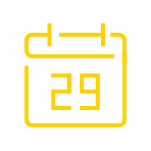About your degree in Montessori education
Our online Montessori Early Childhood Studies (Graduate Practitioner) BA (Hons) is ideal if you're passionate about making a positive impact on young children's learning and want to develop your understanding of Montessori pedagogy. Successful completion of this course will give you the skills, knowledge and confidence to work in any registered Montessori practice in England or internationally as a Montessori teacher. You'll study online giving you the flexibility to develop your career around your other commitments and your work placement will give you valuable hands-on experience in Montessori teaching to learn teaching methods and classroom management.
Course highlights
- Be one of the first Montessorians to hold a full and relevant, internationally recognised Montessori Early Childhood Studies degree
- You'll complete the Early Childhood Graduate Practitioner Competencies (ECGPC)
- Online learning gives you the flexibility to fit studying around your other commitments and the work placement gives you practical hands-on experience in Montessori education
- Ranked 7th in the country by the Guardian League Table 2024
How you'll study
This course is studied online but does include a work placementStudy this course over 3 years
Start your course in September
30th April 2024
Fees: £15,900
Payment plans availableUK Quality Assured
Course overview
Montessori education is becoming a very popular choice to support early childhood learning and development. It’s a child-led approach to learning that was pioneered by Maria Montessori in the 20th century. Although as a philosophy it is now more than a century old, it is more relevant to developing skills for the future in children than any other education approach today.
You’ll study Montessori pedagogy, gaining an understanding of her secrets of childhood, and the importance of supporting the child to reach their full potential as a Montessori practitioner. You’ll explore the three elements of the Montessori triangle: the child, the environment and the teacher and develop your understanding of how these principals collaborate to support the journey of early childhood and primary education, and enable children to succeed.
Throughout the course you’ll be supported by academics who are also qualified Montessori practitioners offering you a knowledgeable and reflective teaching team. You’ll also take part in work placements (20 days per year) that will give you valuable hands-on experience and form part of the assessment criteria that makes this degree ‘full and relevant’. If you are not currently working in a relevant setting, we will help you find a suitable work placement.
During your studies, you’ll complete the ECGPC (Early Childhood Graduate Practitioner Competencies). This is a professionally recognised framework that’ll enhance your employability and provide some clarity for your prospective employers as to the graduate level of your achievements. The competencies are included on the QAA Early Childhood Studies Subject Benchmark Statements, with practice at Level 6 recognised by the Department for Education (DfE).
It is a mandatory requirement to take a practical placement as part of this course. If you are already working in an Early Years (0-8 years) setting then this can be incorporated into your work, otherwise you will need to secure a placement. It’s a great chance to get hands-on experience in early years education and enhance your professional practice.
We’ve worked with employers, practitioners and Montessorians in designing our BA (Hons) Montessori Early Childhood Studies, to make sure you graduate with the knowledge, skills and abilities they’re looking for. We’ve also been guided by The Children’s Workforce Development Council and the Early Years Professional Framework.
The successful completion of this course will allow you to work in any registered setting (nurseries or pre-school), in England or internationally as a qualified Montessori teacher. It will also give you a platform to move into leadership roles and make further positive impacts to the lives of young children through the Montessori philosophy and child centred approach.
Following successful completion of this course you may wish to further develop your understanding of Montessori practice with our 100% online Education with Montessori Master’s degree.
Modules
Play, Health and Wellbeing
Nowadays the link between lifestyle factors such as activity levels, diet and health is becoming increasingly clear, and greater importance is being placed on the need for children to access outdoor environments. It is crucial to get children making choices and enjoying a healthy balanced diet and active lifestyle from as young an age as possible. Play is recognised as being crucial to children's physical, mental, social and emotional well-being, yet opportunities and encouragement for free play are becoming increasingly limited. You’ll consider children’s well-being and how it relates to their rights. You’ll learn how well-being can be supported through healthy eating, regular physical activity and a play-based environment. The key topics will be: well-being, healthy eating and exercise, outdoor play and forest schools.
Researching Childhood
You’ll be introduced to essential research skills relating to children and learn about the importance of linking theory to your practice. The aim is for you to develop skills in child observation and apply general research methods to childhood studies. You'll be expected to work in small groups and share your experience and ideas with your class. The key topics will be: research methods, ethics involved in working with children, types of observation and studying children.
Theoretical Montessori Foundations
Understand the founding principles, philosophy and methodology of the Montessori Method. Through investigation and research, you'll take the journey of Montessori from its roots to the modern day. Explore the significance of a cosmic education and the child as a change agent. You'll examine the pedagogical approach through the lens of the dynamic triangle, the child, the environment and the teacher. Montessori advocated that the psychological characteristics of development when nurtured enable the child to reach their full potential. We'll encourage you to begin to inform your own personal pedagogy, supported by opportunities for self-expression and collaboration.
Montessori Curriculum 1
This is the first of two modules that focus on the Montessori curriculum materials. In the first, you’ll engage in activity and curriculum design in the areas of Activities for Everyday Living; Sensorial; Knowledge and Understanding of the World; and Babies and Toddlers. You’ll practice with the unique Montessori materials and their presentations while in your placement setting. Through exploration you’ll become confident in using the Montessori materials and understanding the importance of further Montessori activities that support the learning environment. The Montessori curriculum was developed to support children's understanding of their development potential and to harness a love of learning. You’ll develop a confidence in supporting children through the carefully prepared Montessori learning environment. You’ll consider the factors influencing holistic child development, alongside planning, observation and reflection.
Supporting Children's Learning: Comparing Curricula
This module is about the ways in which children play and learn and the means by which adults can mediate and support their experience. You’ll discuss pedagogic strategies and learn about the importance of creative practices and children learning through play. Different early years’ curricula (Steiner Waldorf, Montessori method, Experiential Education, High Scope, Reggio Emilia and Te Whariki) will be compared and contrasted with England’s curriculum. The key topics will be: early years’ curricula, learning through play, creative learning and pedagogy as well as documenting care and learning.
Ruskin Module
Ruskin Modules are designed to prepare our students for a complex, challenging and changing future. These interdisciplinary modules provide the opportunity to further broaden your perspectives, develop your intellectual flexibility and creativity. You will work with others from different disciplines to enable you to reflect critically on the limitations of a single discipline to solve wider societal concerns. You will be supported to create meaningful connections across disciplines to apply new knowledge to tackle complex problems and key challenges. Ruskin Modules are designed to grow your confidence, seek and maximise opportunities to realise your potential to give you a distinctive edge and enhance your success in the workplace.
Embracing Diversity
In this module, you'll discuss disability, differences and special educational needs in relation to debates on inclusion and exclusion, needs and rights, and the importance of seeing every child as an individual. You’ll explore different cultural practices to enable an empathetic understanding of how to help all children feel welcome in a setting. Theories for this module are drawn from different backgrounds such as psychology, sociology, and education. The key topics will be: history and language of inclusion, cultural differences and EAL, family structures and lifestyles, policy and legislation as well as special educational needs.
Safeguarding Children
In this module you’ll explore children’s welfare and well-being. You’ll learn about the complexities attached to the notion of risk, child abuse, protection and safeguarding. This module will offer a comprehensive cover of English legislation, policy and procedures for keeping children safe from abuse. You will gain an understanding of the range of provision available to support children’s needs. The key topics will be: child protection, support and intervention, policy and legislation, multi-disciplinary working and welfare and well-being.
Montessori Curriculum 2
You’ll now be fairly familiar with the Montessori materials and activities, you’ll continue to build on this knowledge in this module but with a particular focus on literacy, maths and creativity. We’ll support you in developing your knowledge of curriculum design and you’ll put this into practice in a Montessori early years environment. Observing learning on placement, you’ll analyse the learning journey and reflect on your own development needs. You’ll develop more in-depth exploration of the philosophy behind the presentations, the mathematical mind and the theory of abstraction. Montessori advocates the importance of the learning materials and on completion of this module you’ll have a firm foundation of knowledge of the materials and the presentations that interlink across the learning curriculum in a Montessori classroom.
Children's Rights
A critical exploration of children's rights with the focus on rights to education, protection, human rights, and participation. The legal position of children has been enhanced by the United Nations Convention on the Rights of the Child (UNCRC) 1989 to encompass principles of protection, provision of services and participation. However, not all children's lives are the same and it is important that students of early childhood develop a broader perspective by using evidence from international and national contexts. Successful completion of this module will be relevant to your future employment in voluntary and statutory agencies working with young children.
Undergraduate Major Project
Your Undergraduate Major Project is a chance to raise and address significant questions relating to your chosen topic/issue. You will be supported by a tutor with similar interests and research profile. This module requires autonomous study, and it is your chance to demonstrate that you have met our University’s expectations and are ready to graduate.
Change and Sustainability in Montessori Context
Effective leaders are able to foster effective team development and foster an agency of change. Montessori was an envisioned leader who argued that adults, as leaders, should take direction from children as agents for change. You’ll reflect on the position of ‘self’ in how change can evolve and will explore styles of leadership that will support leadership concepts from the literature, including transformation, adaptation, service, humility and contextual elements. You’ll investigate Montessori’s philosophy of building relationships on trust and from a platform that advocates social justice. You’ll take this further by identifying an area of practice and propose and justify a strategy for improvement and change.
Montessori Leadership and Management
Here we build on the principle that good quality in Montessori early years provision requires creative and effective leaders, who can manage resources and foster effective team development. You’ll examine the context of leadership through a Montessori lens. Maria Montessori’s writings for a perspective on leadership aligned with her principles and practices. Her foundation of the prepared environment and the prepared adult supports the foundation for leadership and has influence beyond the classroom context. We’ll provide an opportunity to critically review the application of theory to practice to further your understanding of leadership and management in a Montessori and early childhood context.
Interdisciplinary Perspectives
This module will give you an overview of childhood from a range of different perspectives: geographical, historical, philosophical, psychological, sociological, educational and economic. It links concepts from different disciplines to contextualise childhood and update your knowledge of the subject at the end of the course. The key topics will be: how notions of childhood vary across time and place, philosophies and constructs of childhood, the psychosocial interface and the social, political and economic world.
Early Childhood Graduate Competencies
To help you meet the Early Childhood Graduate Practitioner Competencies, you’ll study this module across all years of your degree. You’ll take part in 85 days of placement (30 year 1, 25 year 2 and 30 in your final year) and reflect on your experiences. The Graduate Practitioner is an advocate for young children’s rights and participation and recognises that young children are active co-constructors of their own learning. As a Graduate Practitioner you’ll apply high-level academic knowledge of pedagogy and research evidence, of the holistic development of infants and young children (0-8), in a practice context that is respectful of the child, their family and community. This qualification will make you workplace ready with EYFS when you graduate.
Modules are subject to change and availability.
Assessment
You’ll be assessed using both academic and practical tasks to evaluate your knowledge and understanding. Assessment methods used will include essays, professional reports, videos, and various presentation elements.
You’ll meet the nine PCGPC competencies through assessed observation of practice, practice-based tasks and academic assessment.
How you'll study
Our Education with Montessori Early Childhood Studies BA (Hons) is studied predominantly online, but you’ll also take part in 85 days of placement (30 days in year 1, 25 days in year 2 and 30 days in your final year). If you are not currently working in a relevant setting, we will help you find a suitable work placement.
You’ll study through Canvas, our world-class online Learning Management System (LMS), which can be accessed from your phone, pc or tablet at home or on the move. Canvas provides instant access to study materials, forums, and support from tutors and classmates, as well as enabling easy submission of your assignments.
On successful completion of your studies you’ll be invited to attend a graduation ceremony on campus. If attending the ceremony in person is not possible then we’ll arrange to have your certificate sent to you.
Supported distance learning
We understand that distance learning is different to traditional campus study and if you’re new to online study you may have concerns or apprehensions about studying your Montessori degree online, and that’s natural.
To help put your mind at ease we have a dedicated Distance Learning Support Team to help and support you throughout your time at ARU, starting with your first online induction and staying with you right through to graduation. In addition, you’ll also be supported by specialist education module tutors, well experienced in supporting distance learning students.
Once you start your degree in Montessori education, we encourage the creation of online communities and many of our learners find these connections with others invaluable, helping them to stay motivated, share concerns or make new friendships.
Contact us to talk through any questions or concerns or visit our support page for more information about the support services available.
Gold-standard education
We're proud to have received a Gold award for the quality of our education in a UK-wide review of university teaching standards.
Why we're rated Gold
Our course content and delivery is rated as outstanding with the review citing ‘innovative and highly effective course design and content that inspires students to actively engage and commit to their learning’.
We’re also rated outstanding in the areas of:
- student engagement in learning
- learning environment and academic support
- learning resources
- student engagement in improvement
- approaches to supporting student success
- intended educational gains
- approaches to supporting educational gains.
What is the Teaching Excellence Framework?
The Teaching Excellence Framework (TEF) is a national scheme run by the Office for Students that focuses on the areas students care most about: teaching, learning, and achieving positive outcomes from their studies.
It has three outcomes: Bronze, Silver and Gold.
This rating was awarded in September 2023, and lasts for four years.

Be part of the University of the Year
We're proud to be the Times Higher Education (THE) University of the Year 2023.
The prestigious THE awards honour ’exceptional performance during the 2021-22 academic year, and reflect ARU’s success in delivering high-impact projects during this period, despite the challenges of the Covid-19 pandemic.
The award recognises the difference we make in the region and our communities – while also acknowledging the broader impact of our world-leading research, and the contributions our students and graduates make to society.

Careers
What could a Montessori Bachelor’s degree do for my career?
A Montessori Early Childhood Studies BA (Hons) degree is a full and relevant qualification for any practitioner looking to understand the Early Years Montessori method and philosophy. You may be an early years Montessori teacher, early years practitioner, or teaching assistant looking to broaden your working practice to support the children under your educational care. You may be looking for a qualification to launch your career in early years education and care or primary education.
During your studies you’ll also complete the ECGPC (Early Childhood Graduate Practitioner Competencies) which is a professionally recognised framework that can enhance your employability. Please see the course overview for more information on ECGPC.
What job roles can I consider with degree in Montessori education?
A Montessori Early Childhood Studies BA (Hons) could lead to a wide range of career opportunities within the education sector, and it is ideal for those looking to advance their careers to become Montessori teachers. These are just some of the job roles that a Montessori Early Childhood Studies BA (Hons) graduate may consider, possibly with further Montessori training depending on the role:
- Montessori Teacher in a primary school
- Early Years Teacher
- Early Years Practitioner
- Nursery Manager
- Assistant Headteacher
- Headteacher
- A teacher of Montessori education
If you are looking for more information about these job profiles and potential salary earnings see Prospects.ac.uk. It’s important to note that salaries can vary widely depending on the job role, employer, industry sector and location.
What skills will I get from a Montessori degree to help my career?
Choosing to study a Montessori Early Childhood Studies BA (Hons) will give you many transferable skills. Here are just some of them:
- You will develop critical thinking skills, initiative, and personal responsibility
- Improve decision-making skills in unpredictable and complex situations
- Learn to communicate effectively in a variety of media
- Apply creativity and critical analysis
- Be able to visualise and instigate change in practice
- Manage your own CPD
What can I study after a Montessori Bachelor’s degree?
Depending on your long-term goals and desired career, you may consider a postgraduate degree or other equivalent qualifications in a related subject such as Education with Early Childhood MA or Education with Montessori MA. A Master’s degree is the most common type of postgraduate qualification and usually focuses on a specific area of a wider subject which may support your future career development and best practice. Having a bachelor’s degree under your belt is a key entry requirement in opening doors to a Montessori qualification in postgraduate study.
Careers Advice Service
Once you become an ARU student you will be able to access our Employability service to help you at whatever stage of your career, whether that’s landing your dream job or the next progression step.
We offer:
- careers advice, including one-to-one online and telephone appointments with our experienced advisers
- help with your CV, job searches, applications and interview preparation
- an online portal packed with useful careers resources
- our Employability Programme, which helps you hone the skills employers say they want in graduates.
Entry requirements
- 88 UCAS Tariff points from a minimum of 2 A Levels (or equivalent)
- 5 GCSEs at grade C, or grade 4, or above, including English
- An Enhanced Disclosure and Barring Service (DBS) disclosure will also be required
If English is not your first language, you will be expected to demonstrate a certificated level of proficiency of at least IELTS 6.0 or equivalent.
As a distance learner, you’ll also need a suitable computer with internet connection, together with sufficient IT competence to make effective use of word processing, internet and email.
Our published entry requirements are a guide only and our decision will be based on your overall suitability for the course as well as whether you meet the minimum entry requirements.
Fees & funding
Fees
The full tuition fee for this Montessori degree is £15,900.
The tuition fees you pay each year will be £5,300. The course is studied over 3 years.
Accredited Prior Learning may reduce the tuition fees. This will be confirmed once your application has been submitted.
Funding
Government-backed part time student loans are available to cover the cost of studying this course. These are subject to eligibility and terms and conditions.
We offer payment by instalments, so you can spread the cost of studying with us.
For military students: You can use your ELCs towards this course. ARU is a recognised ELCAS provider (number 1007). Please contact your Learning Centre for details of ELC, eligibility and how to apply.
For more information on how you fund your studies please see our funding page.
What our students say
Applying new skills I have learnt on the course to my work in the classroom and seeing the positive effects it has to the children's learning and development has been truly rewarding.
The online platform (Canvas) is fantastic as you can engage in online dialogue, conferences and message one another directly.
I encourage anyone who wants the freedom to travel and work while still pursuing their academic interests to consider the distance learning option.
The lecturers genuinely care, the resources are very helpful, and the support staff are experts who go above and beyond to help.











